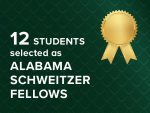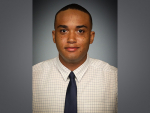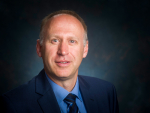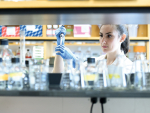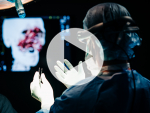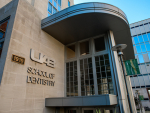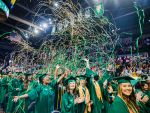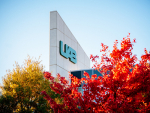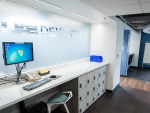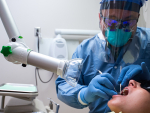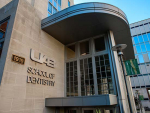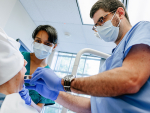Displaying items by tag: school of dentistry
Students and staff were challenged to tell a story in just six words and an image, and the entries are touching, motivational and inspiring.
Tagged under
The program, in its 11th year, celebrates these exceptional business leaders and their accomplishments with a seated awards dinner presented by the National Alumni Society.
Tagged under
Tagged under
Schweitzer Fellowships have an intensive leadership component so that fellows can continue to inspire others to improve the health of those who experience barriers to care beyond their year of service.
Tagged under
The Blaze to DMD program is an 11-month master’s program designed to help students establish a strong foundation in biomedical and health sciences in preparation for a traditional four-year DMD degree.
Tagged under
This registry will help practitioners better understand dental implants and their impact on patients’ health, function and quality of life with the aim of improving treatment outcomes of future therapy.
Tagged under
Tagged under
The funded project began Jan. 1 and is expected to run for two years. The proposal focuses on developing a novel dental pulp capping material by improving bioactivity of pulp tissue while achieving ideal mechanical properties.
Tagged under
The technology gives surgeons a real-time three-dimensional navigation of complex tumors, so they can easily sort through the layers of the skull and gain insights into the tumor and surrounding anatomical structures like major arteries and skull base.
Tagged under
Tagged under
Tagged under
- release
- commencement 2022
- office of the president
- graduate school
- college of arts and sciences
- school of education
- school of engineering
- school of nursing
- school of medicine
- school of dentistry
- school of optometry
- school of health professions
- school of public health
- collat school of business
- abroms engel institute for the visual arts
- alys stephens center
- athletics
- oneal comprehensive cancer center
- wbhm
- uab educational foundation
- uab health services foundation
- students
Tagged under
Maintain good dental health this Halloween by indulging that night, controlling candy intake after the binge, eating more chocolates than sticky, sour candy and brushing teeth twice daily.
Tagged under
The five-year project will focus on improving education and training efforts of dental students on how to care for vulnerable groups, including those undergoing substance use disorders.
Tagged under
The award recognizes Gilbert’s commitment to research and its application to clinical practice of dentistry.
Tagged under
Experts provide safety tips for protecting one’s eyes, mouth and body from sports-related injuries this season.
Tagged under
Dentistry’s advances over the decade include cavity fillings without drilling, fillings that fight bacteria and 3D imaging for implants.
Tagged under
$3.2 million in funding from the NIH will enhance dentistry research and training and address the nationwide shortage of dental academicians.
Tagged under
The clinic — supported by a $3.4 million state appropriation — is part of the UAB School of Dentistry’s innovative efforts to combat the shortage of dentists in rural areas of the state.
Tagged under



